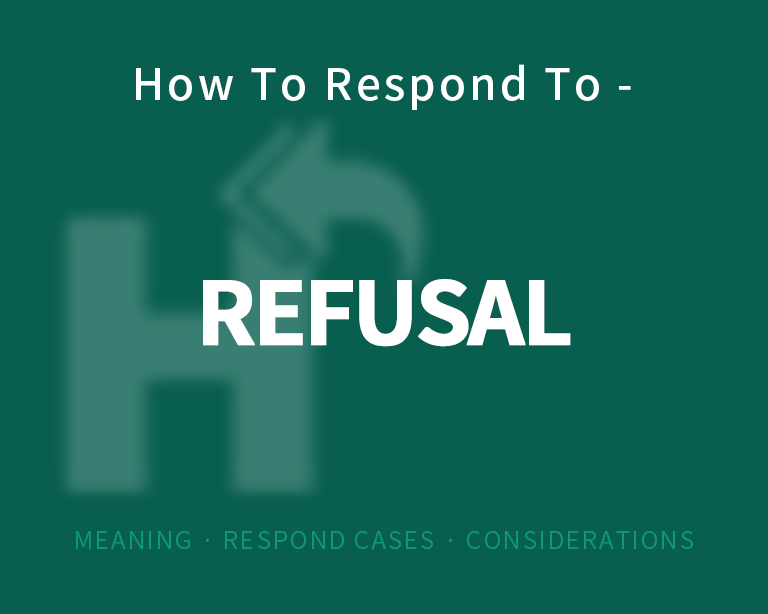The Best Way to Respond to Refusal?

Responding to refusal can be a difficult thing to do, especially if you were hoping for a positive outcome. In this article, we will discuss how to respond to refusal in a conversation.
What is Refusal in a Conversation
Refusal is the act of declining or rejecting an offer or request. In a conversation, refusal can be identified by the use of negative language or a direct rejection.
3 Specific Cases of Refusal
Case 1: Job Offer Refusal
Background: You have received a job offer and it has been declined.
Suitable reply sentence: ""Thank you for considering me for the job. I understand your decision and appreciate the opportunity. If possible, I would appreciate any feedback or insight you may have for future job applications.""
Case 2: Business Proposal Refusal
Background: You have submitted a business proposal and it has been rejected.
Suitable reply sentence: ""Thank you for considering my proposal. I understand your decision and appreciate the opportunity. If possible, I would appreciate any feedback or insight you may have for future proposals.""
Case 3: Social Event Invitation Refusal
Background: You have declined an invitation to a social event.
Suitable reply sentence: ""Thank you for the invitation. I appreciate the thought and consideration, but unfortunately I am unable to attend. I hope you have a wonderful event and look forward to future opportunities to connect.""
How to Think About Responding to Refusal
When responding to refusal, it is important to be gracious and understanding. It is also helpful to ask for feedback or an explanation in order to learn from the experience.
Considerations When Responding to Refusal
When responding to refusal, it is important to respond promptly and respectfully. Express your understanding of the other party's decision, and ask for feedback or an explanation if appropriate. Remember to maintain a positive attitude and seek to learn from the experience.
Conclusion
In conclusion, responding to refusal is an important part of communication, whether it's for a job offer, business proposal, or social event invitation. By being gracious and understanding, asking for feedback or an explanation, and maintaining a positive attitude, you can respond effectively to refusal. Remember that each experience is an opportunity to learn and grow. Keep practicing and developing your communication skills, and you will become a master at responding to refusal.